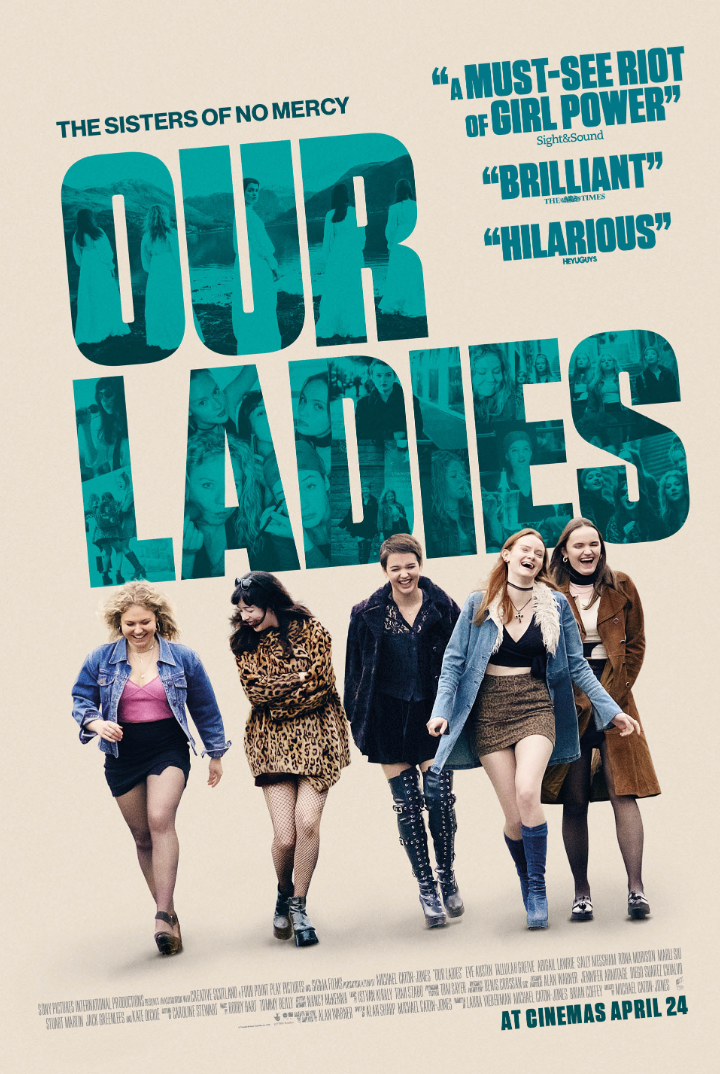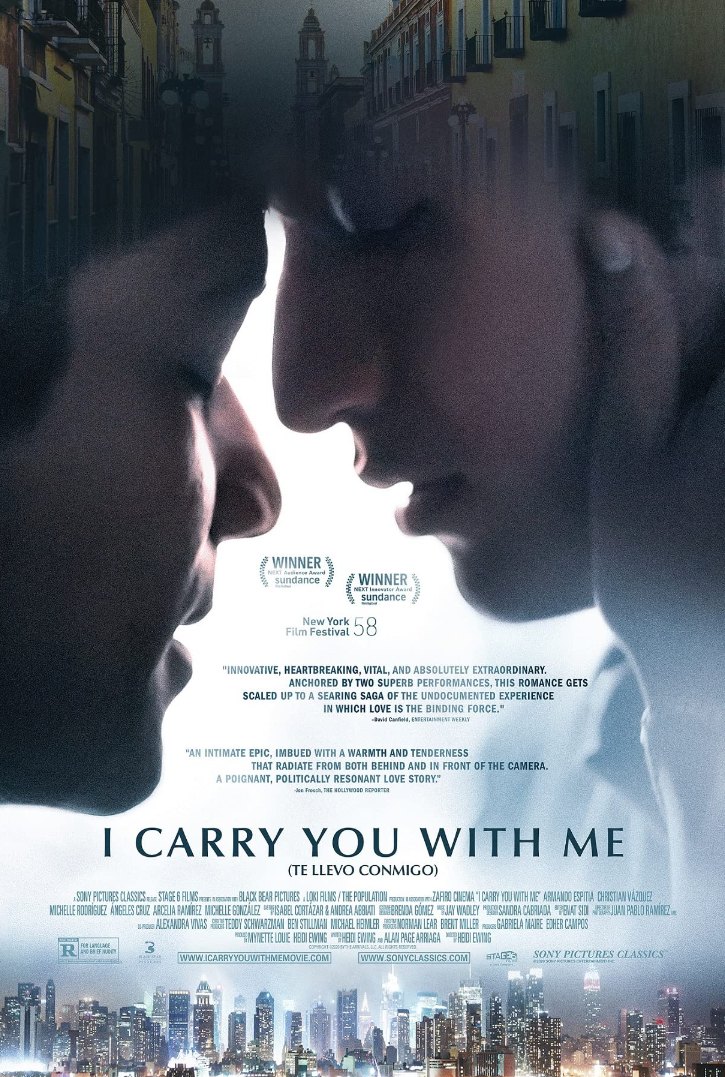The film studio was founded as Cohn-Brandt-Cohn Film Sales in 1918, renamed Columbia Pictures in 1924, and began to truly build prestige in the ‘20s by association with director Frank Capra, producing some of the biggest movies and celebrities of Hollywood’s Golden Era. Coca-Cola briefly acquired the studio in the ‘80s, launched TriStar pictures, and Columbia/TriStar was its own operation until Sony purchased it in 1989. Today, Sony releases films from Columbia, Tristar, Sony Pictures Animation, Screen Gems, and Affirm. In April 2021, Sony signed deals with Netflix and The Walt Disney Company (Disney+ and Hulu) to host films on those streaming platforms after their theatrical runs.
Sony Pictures’ earlier years have a rocky history with LGBTQ-inclusive films. The 1962 political thriller Advise and Consent featured a subplot where a Senate chairman is blackmailed over an affair with another man, leading to his death by suicide, and LGBTQ groups including GLAAD denounced vilifying portrayals of lesbian and bisexual women in TriStar’s Basic Instinct (1992). More recent LGBTQ-inclusive films from Sony include Philadelphia (1993); Threesome (1994); As Good as it Gets (1997); Rent (2005); The Girl With the Dragon Tattoo (2011); The Mortal Instruments: City of Bones (2013); Rough Night (2017); The Girl in the Spider’s Web (2018); and The Broken Hearts Gallery (2020).
Escape Room: Tournament of Champions
Widest Theatrical Release: 2,815 theaters
Vito Russo Test: Fail
While this film does not include any explicitly LGBTQ characters, the ensemble cast does include a character named Brianna played by Indya Moore, a trans and non-binary actor. There is no confirmation of Brianna’s gender identity or sexual orientation in the film prior to the character’s death. As such, GLAAD did not include this film in its tally.
A Journal for Jordan
Widest Theatrical Release: 2,500 theaters
Vito Russo Test: Fail
A Journal for Jordan follows a romance between Dana and Charles, the latter of whom is in the military, as they try to build their family. When Dana first meets and falls for Charles, she talks to a group of friends about it, which includes Ciro, a gay man. Ciro doesn’t have much of a plot beyond encouraging Dana’s relationship with Charles and does not receive further character development past being her friend who happens to be gay. While it was a nice moment of small inclusion, it was a missed opportunity for the film to not give Ciro any further defining features past acting as a sounding board for the straight protagonist.
Our Ladies
 Widest Theatrical Release: 25 theaters
Widest Theatrical Release: 25 theaters
Vito Russo Test: Pass
Based on the novel The Sopranos, this film follows five Catholic Scottish teen girls in 1996 over the course of one day as they travel to Edinburgh for a choir competition and then return home. One of the girls, Finnoula, breaks away from her friends to explore the city – more specifically, a lesbian bar. At the bar she runs into Kay, the school’s rich head girl, who Finnoula had previously antagonized. The two bond and Kay shares that she has had a threesome with a man and another woman, and Fionnula admits that she would like to be with a woman. Upon returning home, Kay and Fionnula share a kiss at a local club. The friend group is supportive except for one girl who worries that people will now think she is gay by association for being friends with a queer woman. The film ends with text cards sharing updates on all five girls; Finnoula and Kay were the only ones who made it out of their small town.
For a film that focused on five main characters, it was exciting that one of them was queer and got to have a romance with a classmate, arguably the strongest romantic relationship of the movie. It was also nice to see Finnoula’s friends be happy for her and excited to hear the details of her new relationship. It’s important that the queer main characters were comfortable in their own sexuality and were able to share such a formative moment together. We wish the film had played in more theaters in the U.S. as its theatrical run was limited to larger cities.
Peter Rabbit 2: The Runaway
Widest Release: 3,346
Vito Russo Test: Fail
While some news outlets have read the character Pigling Bland as gay, GLAAD did not count the character in its tally. Pigling is a more flamboyant character who also occasionally wears makeup, but nothing further is provided in the story about the character.
Venom: Let There Be Carnage
Widest Theatrical Release: 4,225 theaters
Vito Russo Test: Fail
The story at the center of the Venom films is protagonist Eddie Brock’s relationship to the alien parasite Venom who lives inside his body. Throughout the film, there are jokes and references to the two of them being a couple; they have a “break-up,” Venom “comes out” as who he is, someone refers to Eddie and Venom needing “couples therapy” and the resolution of the film involves them on a beach watching the sunset. However, these scenes played more as a joke than an actual queer romance; Eddie is still in love with his ex, Anne, and Eddie and Venom’s relationship is never explicitly romantic, regardless of the several jokes and allusions throughout the film.
CORPORATE ACTIONS
In 2020, Sony Pictures Entertainment joined over 250 other businesses that signed onto HRC’s and Freedom For All American’s Business Statement Opposing Anti-LGBTQ State Legislation. Sony Corporation has also joined the coalition of Businesses in favor of passing the Equality Act. Both Sony Pictures Entertainment Inc. and parent company Sony Corporation of America received top scores of 100 on the 2022 Human Rights Campaign Foundation’s Corporate Equality Index. This score was earned by offering inclusive benefits, employee protection policies which include both sexual orientation and gender identity, an LGBTQ employee resource group and “distinct efforts of outreach or engagement” with the community. Sony Pictures also has a supplier diversity program, which partners with the National LGBT Chamber of Commerce and L.A. LGBTQ Chamber of Commerce, and aims to increase diversity of ownership in their vendors. In 2021, no anti-LGBTQ political donations were found from Sony Pictures. Parent company Sony Corporation donated more than $10,000 to anti-LGBTQ politicians.
OPPORTUNITIES AHEAD
Sony will release I Wanna Dance With Somebody, a biopic of iconic singer Whitney Houston, in December of this year. Robyn Crawford, Houston’s best friend, wrote in her 2019 memoir A Song for You: My Life with Whitney Houston that she and Houston were in a long-term romantic relationship. This is a golden opportunity for Sony to increase representation while shining a spotlight on this important, but less known, facet of Houston’s life. Out singer Lance Bass will create a film based on his experiences with superfans of *NSYNC, telling the story of two best friends following the band on their summer tour. As it comes from Bass himself, as well as Crazy Ex-Girlfriend creator Rachel Bloom, there is plenty of opportunity for queer content in the film.
Sony will adapt the science fiction series The Broken Earth trilogy into films. The books contain several LGBTQ characters, including Alabaster, who is gay, Innnon, who is bisexual, and Tonkee, who is trans. Sony is also planning a live adaption of the ‘80’s anime Robotech. The original series includes Lancer, a character who was understood to have had a drag persona before drag was in the mainstream, when at night he became a popstar named Yellow Dancer. Hopefully, Lancer makes the leap over to the new adaptation and his story is updated for today’s audiences.
Sony Pictures Classics (SPC), Sony Pictures Entertainment’s independent film division, has acquired, produced, and distributed independent, documentary, and arthouse films since 1992. The studio has released multiple high-profile LGBTQ films since its launch, including the documentary The Celluloid Closet (1995), which is based on GLAAD co-founder Vito Russo’s book of the same name and explores LGBTQ representation throughout the history of film to its release; My Life in Pink (1997); Kill Your Darlings (2013); I’m So Excited! (2013); Love Is Strange (2014); Grandma (2015); The Meddler (2016); GLAAD Media Award winners Call Me By Your Name and A Fantastic Woman (2017); Pain and Glory (2019), and more.
Julia
Widest Theatrical Release: 288 theaters
This documentary following chef Julia Child contains several mentions of the LGBTQ community. At one point, Julia’s husband Paul was accused of being gay by the government. The film also discusses Julia’s relationship to the gay community and her friendship with her lawyer, Bob Johnson. She had initially not known that he was gay, but when Bob passed of AIDS-related complications, Julia became an outspoken advocate for the community and used her platform to shine a spotlight on the need for care and funding for HIV and AIDS research and patients.
I Carry You With Me
 Widest Theatrical Release: 111 theaters
Widest Theatrical Release: 111 theaters
Based on a true story, this GLAAD Media Award-nominated drama tells the story of Iván, who is currently a chef in the U.S. but lived the first few decades of his life in Mexico. The film shows Iván falling in love with another man, Geraldo, while balancing the relationship he has with his young son. When Iván’s family finds out about his relationship with Geraldo, he is forbidden to see his son. This prompts his decision to take the perilous journey to the United States, where he could be able to live more freely as an out gay man and pursue his dreams of becoming a chef. In the future, we see Iván and Gerardo still together, and Iván achieved his career dreams of opening a restaurant. However, bittersweet reality hangs in the air, even while it seems everything is going well. It remains impossible for Ivan to see his son unless he returns to Mexico, and because he is undocumented, he may be unable to return to the U.S if he does.
This film encompasses the complexity of being a gay immigrant in this country; it shows the joy of falling in love, as well as the pain of family being just out of reach due to prejudice or unjust laws. This real-life adaptation of Iván and Gerardo’s story is a necessary look into the lives of undocumented LGBTQ people in this country.
Parallel Mothers
 Widest Theatrical Release: 684 theaters
Widest Theatrical Release: 684 theaters
This GLAAD Media Award-winning film centers on the titular mothers, Janis and Ana, who meet in the hospital when they both happen to give birth at the same time. After a few months, Janis takes a DNA test and discovers that the child she’s been raising is actually Ana’s. Janis loves this child, so she keeps the truth from Ana, even when Ana returns to her life and shares that her child has died. The two grow closer despite Janis’ secret, and the closeness develops into a romance when they sleep together and begin raising Janis’ child together. When Janis eventually tells Ana the truth, Ana is understandably upset, taking the child and leaving. However, at the end of the film, the two become close again. Janis is pregnant with another child from Antonio, the father of her first child, but is still affectionate with Ana. The ending, and the film as a whole, highlights non-traditional families and showcases how two women can raise children together, accompanied by friends, partners and community.
Additionally, midway through the film, Janis, who works as a photographer, does a photoshoot with a model who is trans. Janis tells the model that it’s about time she was on the cover of a women’s magazine. It is a minor inclusion, but still important, showing trans people in the fabric of this world.


 Widest Theatrical Release: 25 theaters
Widest Theatrical Release: 25 theaters Widest Theatrical Release: 111 theaters
Widest Theatrical Release: 111 theaters Widest Theatrical Release: 684 theaters
Widest Theatrical Release: 684 theaters










